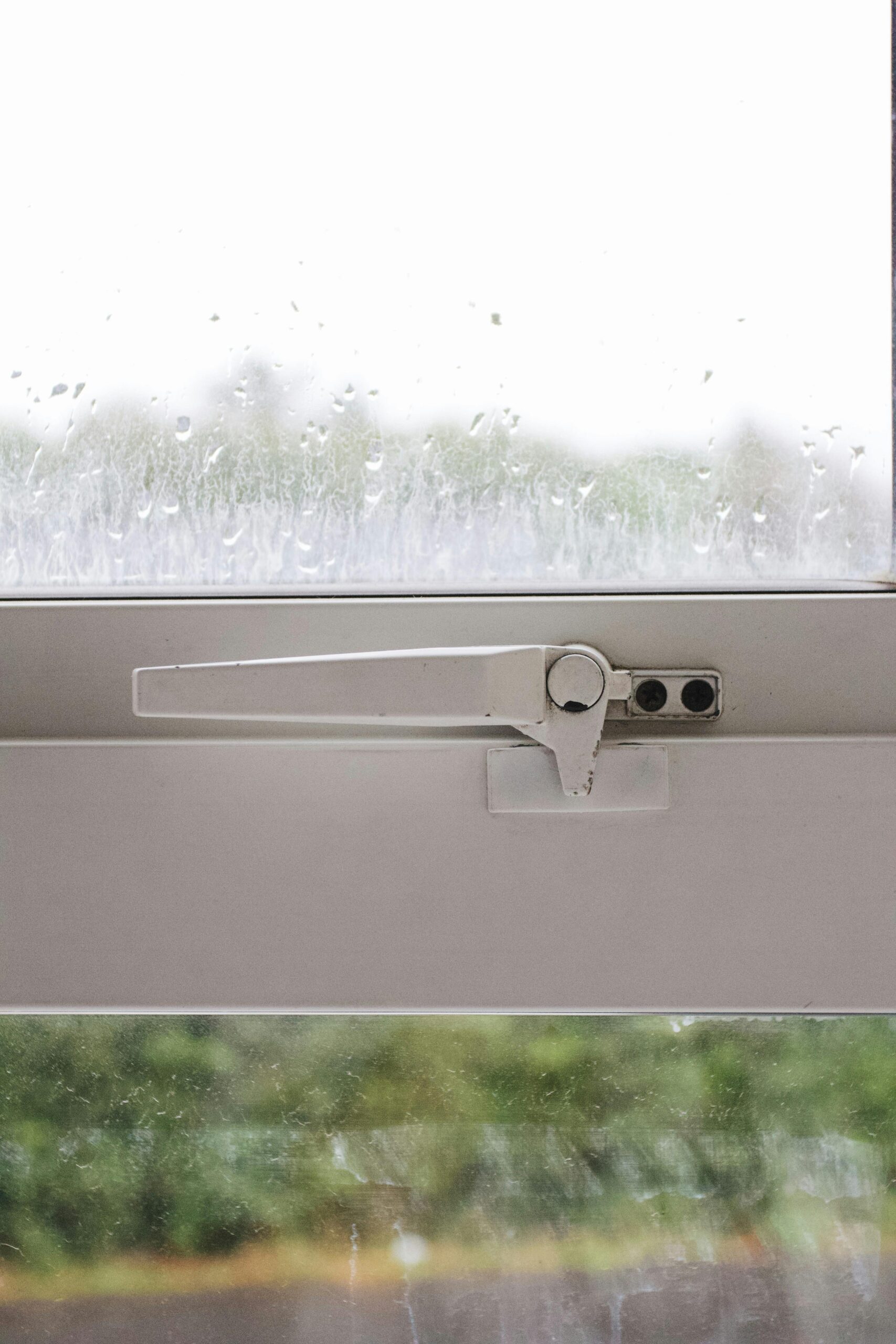Understanding the weather Lisburn N Ireland is more than just checking if you need an umbrella or sunglasses before stepping out. Have you ever wondered how the unpredictable weather in Lisburn can actually shape your daily routines, work plans, and even your mood? This article dives deep into the fascinating ways the climate in Lisburn, Northern Ireland influences everything from your morning commute to weekend activities. Whether you’re a local resident or planning a visit, knowing the ins and outs of Lisburn’s weather patterns is essential for making the most out of your day.
When it comes to weather Lisburn N Ireland, it’s no secret that this region experiences a unique blend of conditions — often changing rapidly within hours. The cool, temperate maritime climate means you might face a mix of sunshine, rain, and wind all in one afternoon. But what does that really mean for your day-to-day life? Imagine planning a picnic or an outdoor event only to be caught off-guard by sudden showers or gusty winds. Staying updated with Lisburn weather forecasts allows you to adapt effortlessly and avoid common pitfalls caused by unexpected weather changes.
Moreover, the impact of weather in Lisburn Northern Ireland goes beyond just convenience; it affects local businesses, agriculture, and even energy consumption. Curious how these weather patterns influence your community and environment? By exploring the detailed weather trends and seasonal shifts, you’ll gain valuable insights into how to better prepare and thrive in Lisburn’s ever-changing climate. So keep reading to discover the power of weather Lisburn N Ireland and how it can transform your everyday experiences!
How Does Lisburn’s Weather in Northern Ireland Affect Your Daily Routine?
Living in Lisburn, Northern Ireland means you’re never quite sure what the weather will bring you each day. If you thought New York’s weather was unpredictable, wait till you experience Lisburn’s climate swings. The weather Lisburn N Ireland can drastically shift your daily routine, from what you wear, how you travel, even to how you plan your leisure time. This article explores how Lisburn’s weather impacts life there and what you might expect if you ever visit or live in this part of Northern Ireland.
The Climate of Lisburn: A Quick Overview
Lisburn sits in a temperate maritime climate zone, which means it usually has mild summers and cool winters, but with plenty of rain throughout the year. It doesn’t get extremely hot or freezing cold very often, but the frequent changes in weather can catch many off guard. The Atlantic Ocean plays a major role in keeping the weather moist and a bit unpredictable.
Here is a simple breakdown of Lisburn’s typical weather patterns:
| Season | Average Temperature (°C) | Rainfall (mm) | Notes |
|---|---|---|---|
| Spring | 6 – 14 | 50 – 70 | Increasing sunshine but still often wet |
| Summer | 14 – 20 | 40 – 60 | Mild temperatures, occasional rain showers |
| Autumn | 8 – 15 | 60 – 80 | Cooling down, wetter, windy conditions |
| Winter | 1 – 7 | 60 – 90 | Cold, damp, sometimes frost but rarely snow |
How Weather Makes You Change Your Daily Routine
If you lives in Lisburn, you quickly learn to prepare for the rain, as it’s almost certain you’ll need an umbrella or waterproof jacket on most days. The wet weather influences several parts of daily life:
Clothing Choices
You probably won’t get away with leaving your raincoat at home, no matter the season. Even sunny mornings quickly turn into drizzly afternoons. Layers are essential because the temperature can drop suddenly, especially in autumn and winter. Some days people wear boots to avoid soggy feet after walking through rain-soaked streets or parks.Transport and Commuting
Rain and wind often slow down traffic or cause delays on Lisburn’s roads and public transport systems. Drivers need to be extra cautious, and people using bikes or walking often must change plans last minute. On particularly bad weather days, some might even choose to work from home, if possible, just to avoid the hassle.Outdoor Activities and Social Life
Planning outdoor events like picnics, sports, or festivals can be tricky. You might find yourself cancelling or rescheduling because the forecast predicts heavy rain or strong winds. Locals have learnt to be flexible with their weekend plans, always checking the weather before heading out.
Comparing Lisburn’s Weather With New York’s
People in New York might think their winters are harsh, but Lisburn’s winters are damp and cold in a different way. New York gets snow and freezing temperatures more frequently, while Lisburn experiences more rain and occasional frost. Summers in Lisburn are cooler, often not reaching the high heat waves that New York faces.
One way to compare:
- New York summers: Hot, humid, thunderstorms often in the afternoon
- Lisburn summers: Mild, mostly cloudy, gentle rain showers here and there
This difference means New Yorkers might dress lighter in summer, while Lisburn residents usually keep a light jacket handy year round.
Historical Context: Why Lisburn’s Weather Is Like This
The weather patterns in Lisburn are shaped by its geographical location and historical climate trends. Being close to the Atlantic Ocean means moist air masses frequently drift over the area, bringing rain and cloud cover. Historically, this region has always had a temperate climate, making it suitable for agriculture but challenging for outdoor work during wet periods.
Lisburn’s position near the Mourne Mountains and other elevated regions also affects local weather, as these can cause microclimates with more rainfall on windward slopes.
Practical Tips For Dealing With Lisburn’s Weather
Here are some practical tips for adapting your routine to the weather in Lisburn:
- Always carry a compact umbrella and waterproof shoes.
- Check weather apps regularly, as conditions change quickly.
- Keep an extra layer in your bag, even during summer months.
- Plan indoor alternatives for outdoor activities to avoid disappointment.
- If you commute by bike, invest in mudguards and waterproof gear.
- Use public transport apps for real-time updates to avoid delays.
Weather Lisburn N Ireland: Impact on Local Economy and Lifestyle
The weather not only affects individual routines but also the local economy. Agriculture in the Lisburn area depends on the reliable rainfall, but too much wet weather can delay planting or
Top 5 Weather Patterns in Lisburn N Ireland and Their Impact on Outdoor Activities
Lisburn, located in Northern Ireland, has a weather that can be quite unpredictable. For those living in or visiting Lisburn, understanding the top weather patterns is essential to planning outdoor activities and daily routines. Weather Lisburn N Ireland is not just about temperature and rain, but how these conditions shape the lifestyle and culture of the area. In this article, we explores the five major weather patterns that influence Lisburn and their impacts in a practical way.
1. Frequent Rainfall and Its Effects
One of the most defining characteristics of Lisburn’s weather is its frequent rainfall. The city is known for receiving rain throughout the year, with the wettest months being from October to January. This constant drizzle can frustrate outdoor enthusiasts but also creates a lush green landscape.
Rainfall in Lisburn impacts outdoor activities in several ways:
- Sporting events like football or rugby matches often get postponed or played in muddy conditions.
- Gardeners in Lisburn benefit from natural watering but must manage poor drainage.
- Walking trails and parks can become slippery, requiring caution.
Historically, the rain has shaped many local traditions, such as the annual Lisburn Festival, which sometimes moves indoors due to wet weather.
2. Mild Summers with Occasional Warm Spells
Unlike other parts of the UK, Lisburn does not usually experience extremely hot summers. Temperatures often stay between 15°C to 22°C during summer months. However, occasional warm spells do occur, bringing a welcome change but sometimes catching residents unprepared.
The impact on outdoor activities includes:
- Picnics and outdoor dining become more enjoyable when the sun appears.
- Farmers take advantage of the milder summers to harvest crops.
- Tourists find the weather pleasant for sightseeing.
Despite the mildness, sunburn can still happen, so sunscreen use is advised even during short sunny intervals.
3. Cold Winters with Frost and Occasional Snow
Winter in Lisburn can be cold, especially from December through February. While heavy snow is rare, frost is common and can make early mornings particularly chilly. The city’s infrastructure copes well with frost but less so with unexpected snowfalls.
Winter weather influences outdoor life by:
- Making travel trickier due to icy roads, especially in rural areas around Lisburn.
- Encouraging indoor activities and community events during the colder months.
- Affecting local wildlife, such as birds seeking shelter or migrating.
In past years, severe frosts have caused some schools to close, highlighting the weather’s direct effect on daily life.
4. Windy Conditions, Especially Near Open Areas
Lisburn’s position exposes it to winds from the Atlantic Ocean. While not usually extreme, the wind can be persistent, particularly in spring and autumn. These conditions sometimes make outdoor plans less pleasant.
Wind impacts include:
- Difficulty for cyclists and walkers on exposed paths.
- Outdoor markets and events need securing tents and stalls against gusts.
- Gardeners must protect delicate plants from wind damage.
In comparison to cities more sheltered by mountains, Lisburn experiences more consistent breezes, which can help clear pollution but also chill the air quickly.
5. Variable Cloud Cover Affecting Sunshine Hours
Cloud cover in Lisburn varies throughout the year, with many days being overcast. This affects the amount of sunshine residents receive, influencing mood and energy levels.
Sunshine variability means:
- Solar panels may be less effective in Lisburn than sunnier areas.
- Vitamin D deficiency can be a concern, especially during winter.
- Photographers and artists often have to adapt to changing light conditions.
A rough comparison shows Lisburn has about 1,100 to 1,300 sunshine hours annually, less than southern England but typical for Northern Ireland.
Summary of Lisburn Weather Patterns and Their Outdoor Impact
| Weather Pattern | Typical Impact on Outdoor Activities | Seasons Most Affected |
|---|---|---|
| Frequent Rainfall | Muddy sports fields, slippery trails, need for waterproofs | Year-round, October-Jan |
| Mild Summers | Pleasant for picnics, crop harvesting, outdoor events | June-August |
| Cold Winters | Icy roads, increased indoor activities, occasional school closure | December-February |
| Windy Conditions | Challenging for cyclists, secure market stalls, plant protection | Spring, Autumn |
| Variable Cloud Cover | Reduced sunshine, affects mood and energy, photography challenges | All year |
How Weather Lisburn N Ireland Shapes Daily Life
The weather patterns don’t just influence outdoor fun but also daily routines in Lisburn. For instance, residents often check weather forecasts closely before heading out, especially during winter. Dressing in layers and carrying waterproofs is a common habit due to the unpredictability of rain.
Local businesses, like cafes and shops with outdoor seating, adjust their offerings depending on the weather. For example, outdoor heaters are popular during colder months
Why Understanding Lisburn’s Climate Can Improve Your Health and Wellbeing
Seasonal Weather Changes in Lisburn: What Residents Need to Know for 2024
Seasonal Weather Changes in Lisburn: What Residents Need to Know for 2024
Lisburn, a charming city in Northern Ireland, experience quite a bit of weather changes through the year. If you live here or planning a visit, understanding the weather Lisburn N Ireland brings each season can really impact your day-to-day life. The year 2024 looks like it will follow some familiar patterns but expect some surprises too. So, what should you be prepared for? Let’s dive into the details and unpack how the shifting seasons affect Lisburn and its residents.
The Climate Basics of Lisburn
Lisburn is situated in the temperate maritime climate zone, which means it usually has mild temperatures and relatively high humidity. Winters are not extremely cold, and summers are generally cool compared to other parts of the UK. Rainfall is quite evenly distributed throughout the year, though some months get more rain than others.
- Average temperature ranges:
- Winter (Dec-Feb): 1°C to 7°C
- Spring (Mar-May): 5°C to 14°C
- Summer (Jun-Aug): 12°C to 20°C
- Autumn (Sep-Nov): 8°C to 15°C
- Annual rainfall: Approximately 800-1000 mm
This climate creates a setting that is quite green and lush but also sometimes a bit damp, which can influence everything from farming to daily commuting.
How Seasonal Weather Changes Affect Daily Life
The weather in Lisburn can be unpredictable, which make planning outdoor activities or even daily errands sometimes a challenge. For instance, a sunny morning could quickly turns into a rainy afternoon, especially in spring and autumn.
Here are some ways the weather impacts locals:
- Transport: Rain and occasional frost in winter may cause slippery roads, leading to delays and accidents.
- Gardening: The mild climate allows a variety of plants to flourish, but sudden cold snaps might damage sensitive species.
- Clothing: Layering is a must; you never know when you need a jumper or a waterproof jacket.
- Health: The dampness can worsen conditions like arthritis or asthma for some residents.
- Energy Bills: Heating costs tend to rise during the colder months, which affects household budgets.
Comparing Lisburn’s Weather with Other Northern Ireland Cities
To put Lisburn’s weather into perspective, it helps to compare it with Belfast and Derry, two nearby cities.
| City | Average Annual Temperature | Annual Rainfall (mm) | Notable Weather Traits |
|---|---|---|---|
| Lisburn | 10°C | 850 | Mild, slightly less rainy |
| Belfast | 9.5°C | 900 | Slightly cooler, more rain |
| Derry | 9°C | 1000 | Cooler and rainier, especially in winter |
Lisburn often enjoys slightly warmer and drier conditions than Derry, making it a bit more comfortable during the winter months, but residents still must be prepared for the occasional heavy showers or cold snaps.
What to Expect from Each Season in 2024
While it’s impossible to predict the exact weather, meteorologists have forecasted general trends for 2024 that residents should keep in mind.
Winter 2024
- Expect colder days than last year, with temperatures dipping closer to freezing.
- Increased chance of frost and perhaps some light snow, though heavy snowfall is unlikely.
- Rainfall will be steady, so waterproofs are essential.
Spring 2024
- Temperatures gradually warming.
- Frequent showers, but more sunny spells compared to winter.
- Ideal time for planting gardens, but be cautious of late frosts.
Summer 2024
- Cool summer with occasional warm days.
- Rain will still occur, but less frequent than spring.
- Perfect for outdoor events, but bring a raincoat just in case.
Autumn 2024
- Cooling temperatures.
- Increased rainfall and windy days.
- Ideal time to prepare homes for winter by checking insulation and heating systems.
Practical Tips for Residents
To make the most out of the changing weather in Lisburn, here are some simple tips:
- Always check local weather forecasts before planning outdoor activities.
- Keep a small umbrella or raincoat in your bag or car.
- Prepare your home for winter by sealing drafts and checking heating systems early.
- Gardeners should protect sensitive plants with fleece during unexpected cold snaps.
- Drivers must be extra cautious during wet and icy conditions; keep tyres and brakes in good condition.
- Keep an eye on energy usage during colder months to manage bills better.
Historical Weather Patterns in Lisburn
Looking back, Lisburn has seen some interesting weather events that shaped the community’s response to seasonal changes.
- The harsh winter of 2010 saw temperatures drop below -10°C, causing
Essential Weather Tips for Lisburn, Northern Ireland: Stay Prepared Year-Round
Essential Weather Tips for Lisburn, Northern Ireland: Stay Prepared Year-Round
Living in Lisburn, Northern Ireland, means dealing with a weather that is as unpredictable as it is varied. The town, lying close to Belfast, experiences a maritime climate which can swing from rainy to sunny with little warning. If you are new to the area or planning a visit, knowing how weather Lisburn N Ireland can affect your daily life is vital. This article will navigate you through the essentials you should know, some practical advice, and a bit about why the weather behaves the way it does here.
Weather Lisburn N Ireland: Discover How It Impacts Your Day-to-Day Life
Lisburn’s weather is typically mild but wet. The average temperature tends to hover around 8-10°C for most of the year, but winters can get colder than you might expect, with occasional frost and snow. Summers aren’t usually hot but can be pleasantly warm, sometimes hitting the low 20s Celsius. Rainfall is frequent throughout the year, making umbrellas almost a constant companion.
How does this affect your daily routine? Imagine walking to work or catching a bus: sudden showers could drench you, or an early frost might make roads slippery. Gardeners need to be aware when to protect their plants from frost or heavy rain. Outdoor events, from farmers markets to school sports days, often face weather disruptions.
Why Does Lisburn’s Weather Behave This Way?
Lisburn’s climate is shaped by its proximity to the Atlantic Ocean and the Gulf Stream, which brings warm currents from the tropics. This maritime influence moderates temperatures but also pulls in moist air, resulting in frequent rainfall. The surrounding hills and valleys can cause microclimates where one part of town might be foggy while another is clear.
Historical weather records show that Lisburn has seen some notable weather events:
- The harsh winter of 1963, known as the “Big Freeze,” brought heavy snow and ice.
- Flooding incidents in the early 2000s due to persistent rain.
- Occasional summer heatwaves, though rare.
Understanding these patterns help locals prepare better for what’s coming.
Essential Weather Tips for Lisburn Residents and Visitors
Whether you live here or just passing through, these tips will help you stay ready for whatever the Lisburn skies throw at you.
- Carry layers of clothing – The temperature can change quickly, so wearing multiple layers means you can adjust easily without getting too hot or cold.
- Always have a waterproof jacket or umbrella – Rain can start unexpectedly and last for hours.
- Check weather forecasts daily – Local news websites and apps provide updates specific for Lisburn, which are more reliable than broad UK forecasts.
- Prepare your vehicle for weather conditions – In winter, ensure your car has antifreeze and snow tyres if needed; in wet seasons, check brakes and tyres regularly.
- Protect your garden and outdoor belongings – Use frost covers during cold snaps and secure loose items before windy days.
- Plan outdoor activities flexibly – Have a backup plan if rain or bad weather interrupts your plans.
Comparing Lisburn Weather to Other Northern Ireland Areas
It’s interesting to see how Lisburn’s weather stacks up against other parts of Northern Ireland:
| Location | Average Annual Rainfall | Average Winter Temperature | Average Summer Temperature | Notable Weather Characteristics |
|---|---|---|---|---|
| Lisburn | 900 mm | 1-5°C | 15-20°C | Frequent rain, mild winters |
| Belfast | 850 mm | 2-6°C | 15-21°C | Similar to Lisburn, slightly milder |
| Derry/Londonderry | 1100 mm | 0-4°C | 13-18°C | Cooler and wetter, more fog |
| Newry | 1000 mm | 1-5°C | 14-19°C | Slightly more rain, colder winters |
This shows Lisburn is quite average in terms of weather for the region, but the small differences can matter depending on your activities or needs.
Practical Examples of How Weather Affects Lisburn Life
- Commuting: On a rainy morning, many in Lisburn find bus services delayed due to waterlogged roads or traffic jams. Wearing waterproof shoes and carrying a rain cover for backpacks is a must.
- Local businesses: Garden centres adjust their stock seasonally because weather Lisburn N Ireland impacts what plants can thrive outdoors.
- Schools: Outdoor playtimes and sports fixtures often get rearranged when weather turns bad, which can frustrate kids but is necessary for safety.
- Tourism: Visitors hoping to explore historic sites like Lisburn Cathedral or Castle Gardens should check the
Conclusion
In conclusion, Lisburn’s weather is characterised by its temperate maritime climate, bringing mild summers and cool, damp winters typical of Northern Ireland. The town experiences a fair amount of rainfall spread relatively evenly throughout the year, contributing to its lush green landscapes. While sudden changes in weather are not uncommon, residents and visitors can generally expect moderate temperatures and occasional breezes. Understanding these patterns is essential for planning daily activities, travel, or outdoor events in Lisburn. Whether you’re a local or a tourist, staying updated with accurate weather forecasts will help you make the most of your time in this charming city. Embrace the often unpredictable but refreshing climate by preparing accordingly and enjoying the natural beauty that Lisburn’s weather helps to sustain. For the latest weather updates and tips on how to adapt, keep an eye on local meteorological services and be ready for whatever the skies may bring.




